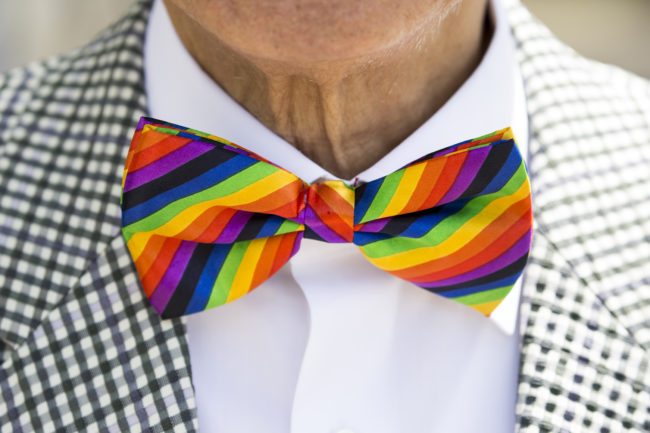Man found guilty by ‘homophobic’ jurors appeals to avoid death sentence conviction

He killed the man in 2011 (Creative Commons)
A man sentenced to death by a jury because they thought he would ‘enjoy prison’ has launched an appeal to be spared by the state Supreme Court.
In 1993, Charles Rhines was sentenced to death by a jury after he bound and stabbed a man to death while robbing a doughnut shop in South Dakota.
However, Rhines’ lawyers are now petitioning for a reduction in his sentence to life without parole due to alleged homophobia shown by the jury during the sentencing.

(Getty)
During the sentencing, the jurors asked the sentencing judge a series of questions, including whether Rhines would be allowed to “mix with the general inmate population,” “create a group of followers or admirers,” or “brag about his crime to other inmates, especially new and or young men.”
The jurors also asked whether Rhines would be allowed to “marry or have conjugal visits,” or “have a cellmate.”
In their petition to the South Dakota Supreme Court, Rhines’ lawyers say that since the original trial, three jurors have come forward to state that the jury sentenced the now 60-year-old to death based on his sexual orientation.

(Tomohiro Ohsumi/Getty Images)
One juror stated that several jurors “knew that [Rhines] was a homosexual and thought that he shouldn’t be able to spend his life with men in prison.”
Another juror recounted one fellow juror saying during the sentencing: “if he’s gay we’d be sending him where he wants to go.”
The second juror added: “one juror made a joke that Rhines might enjoy a life in prison where he would be among so many men.”

(Creative Commons)
The three jurors also stated that Rhines’ sexual orientation was frequently discussed during the sentencing.
“There was lots of discussion of homosexuality. There was a lot of disgust,” the petition states.
Related: LGBT immigrants detained in the US face higher rates of sexual assault
In their response to the petition, the representatives for the state of South Dakota deny the legitimacy of these statements from the jurors.

(Getty)
Although Rhines appealed the original sentencing in 1993, the appeal was reopened due to a 2017 ruling in the Colorado Supreme Court.
This ruling, Peña-Rodriguez v. Colorado, mandated that states must consider jury bias on the basis of race, which Rhines’ lawyers argue could also apply to bias based on sexual orientation.
Rhines’ case rests upon whether any of the jurors relied on anti-gay stereotypes in order to sentence him to death, and whether this sentence was exacerbated by his sexuality.
The South Dakota Supreme Court will decide on the petition by June 14.

